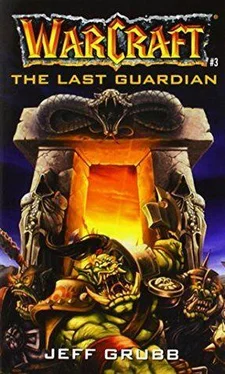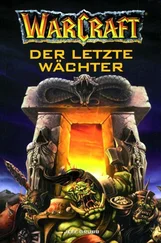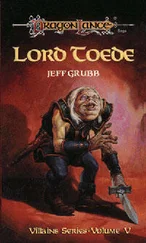By the time the pair reached Medivh, he was breathing heavily, and his pupils were wide in the moonlight. Warriors and vision visitor leaned over him, as the young mage strained to push the words out of his mouth.
“Watch out for me,” he said, looking at neither Llane nor Lothar, but at Khadgar. Then the young Medivh’s eyes rolled up in his head and he lay very still.
Lothar and Llane were trying to revive their friend, but Khadgar just stepped back. Had Medivh truly seen him, as the other mage, the one with his eyes on the war-swept plains, had? And he had heard him, clear words spoken almost to the depth of his soul.
Khadgar turned and the vision dropped away as quickly as a magician’s curtain. He was back in the library again, and he almost stumbled into Medivh himself.
“Young Trust,” said Medivh, the version much older than the one laying on the ground in the vanished vision. “Are you all right? I called out, but you did not answer.”
“Sorry Med…sir,” said Khadgar, taking a deep breath. “It was a vision. I was lost in it, I’m afraid.”
Medivh’s dark brows drew together. “Not more orcs and red skies?” he asked seriously, and Khadgar saw a touch of the storm in those green eyes.
Khadgar shook his head and chose his words carefully. “Trolls. Blue trolls, and it was a jungle. I think it was this world. The sky was the same.”
Medivh’s concern deflated and he just said, “Jungle trolls. I met some once, down south, in the Stranglethorn Vale….” The mage’s features softened as he himself seemed to become lost in a vision of his own. Then he shook his head, “But no orcs this time, right? You are sure.”
“No, sir,” said Khadgar. He did not want to mention that it was that battle he was witnessing. Was it a bad memory for Medivh? Was this the time when he slipped into the coma?
Looking at the older mage, Khadgar could see much of the young man from the vision. He was taller, but slightly stooped from his years and researches, yet there was the young man wrapped within the older form.
Medivh for his part said, “Do you have ‘Song of Aegwynn’?”
Khadgar shook himself out of his thoughts. “The song?”
“Of my mother,” said Medivh. “It would be an old scroll. I swear I can’t find anything here since you’ve cleaned!”
“It is with the other epic poetry, sir,” said Khadgar. He should tell him about the vision , he thought. Was this a random event, or was it brought on by his meeting of Lothar? Was finding out about things triggering visions?
Medivh crossed to the shelf, and running a finger along the scrolls, pulled the needed version, old, and well worn. He unwound it partway, checked it against a scrap of paper in his pocket, then rewound and replaced it.
“I have to go,” he said suddenly. “Tonight, I’m afraid.”
“Where are we going?” asked Khadgar.
“I go alone, this time,” said the elder mage, already striding toward the door. “I will leave instructions for your studies with Moroes.”
“When will you return?” shouted Khadgar after his retreating form.
“When I am back!” bellowed Medivh, taking the stairs up two at a time already. Khadgar imagined the castellan already at the top of the tower, with his runic whistle and tame gryphon at the ready.
“Fine,” said Khadgar, looking at the books. “I’ll just sit here and figure out how to tame an hourglass.”
Medivh was gone a week, all told, and it was a week well spent for Khadgar. He installed himself in the library, and had Moroes bring his meals there. On more than one occasion he did not even reach his quarters in the evening, rather spending the time sleeping on the great library tables themselves. Ultimately, he was searching for visions.
His own correspondence went unanswered as he plumbed the ancient tomes and grimoires on questions about time, light, and magic. His early reports had drawn quick responses from the mages of the Violet Citadel. Guzbah wanted a transcription of the epic poem of Aegwynn. Lady Delth declared that she recognized none of the titles he sent her—could he send them again, this time with the first paragraph of each, so she knew what they were? And Alonda was adamant that there had to be a fifth breed of troll, and that Khadgar had obviously not found the proper bestiaries. The young mage was delighted to leave their demands unanswered as he sought out a way of taming the visions.
The key to his incantation, it seemed, would be a simple spell of farseeing, a divination that granted sight of distant objects and far-off locations. A book of priestly magic had described it as an incantation of holy vision, yet it worked as well for Khadgar as it did for their clerics. While that priestly spell functioned over space, perhaps with modification it could function over time. Khadgar reasoned that this would normally be impossible given the flow of time in a determinant, clockwork universe.
But it seemed that within the walls of Karazhan, at least, time was an hourglass, and identifying bits of disjointed time was more likely. And once one hooked into one grain of time, it would be easier to move that grain to another.
If others had attempted this within the walls of Medivh’s Tower, there was no clue within the library, unless it was within the most heavily guarded or unreadable of the tomes located on the iron balcony. Curiously, the notes in Medivh’s own hand were uninterested in the visions, which seemed to dominate other notes from other visitors. Did Medivh keep that information in another location, or was he truly more interested in matters beyond the walls of the citadel than the activities within it?
Refitting a spell for a new activity was not as simple as changing an incantation here, altering a motion there. It required a deep and precise understanding of how divination worked, of what it revealed and how. When a hand-motion changes, or the type of incense used is deleted, the result is most likely complete failure, where the energies are dissipated harmlessly. Occasionally the energies may go wild and out of control, but usually the only result of a failed spell is a frustrated spellcaster.
In his studies, Khadgar discovered that if a spell fails in a spectacular fashion, it indicates that the failed spell is very close to the final intended spell. The magics are trying to close the gap, to make things happen, though not always with the results intended by the caster. Of course, sometimes these failed magic-users did not survive the experience.
During the process, Khadgar was afraid that Medivh would return at any time, wafting back into the library, looking for the well-read epic poem or some other bit of trivia. Would he tell his master what he was trying? And if he did, would Medivh encourage him, or forbid him from trying to find out?
After five days, Khadgar felt he had the spellmaking complete. The framework remained that of the farseeing, but it was now empowered with a random factor to allow it to reach through and search out the discontinuities that seemed to exist within the tower. These bits of misplaced time would be a little brighter, a little hotter, or simply a little odder than the immediate surroundings, and as such attract the full force of the spell itself.
The spell, if it functioned, should in addition tune in the vision better. This would collect the sounds at the other end and remove the distortion, concentrating them in the same fashion as an elderly person cupping a hand to the ear to hear better. It would not work for sounds beyond the central location as well, but should clarify what individuals were saying in addition to what the caster was seeing.
The evening of the fifth day, Khadgar had completed his calculations, the neat rows and orders of power and casting laid out in a simple script. Should something go horribly wrong, at least Medivh would figure out what had happened.
Читать дальше












